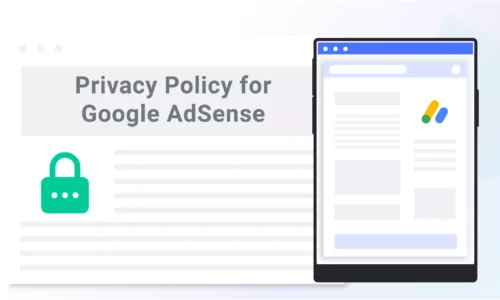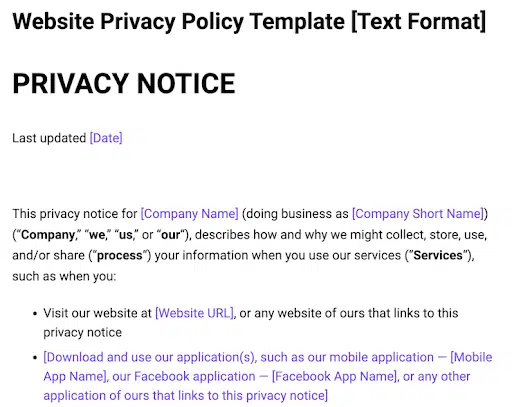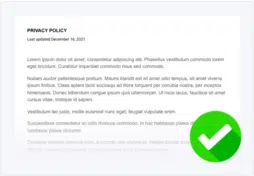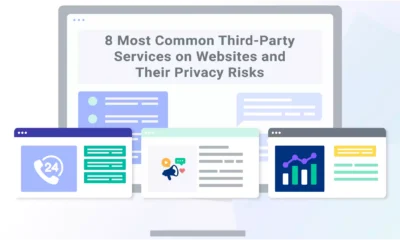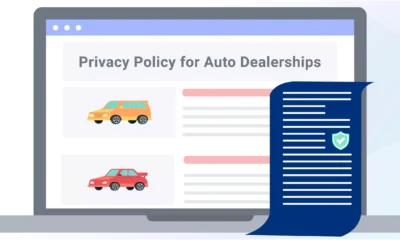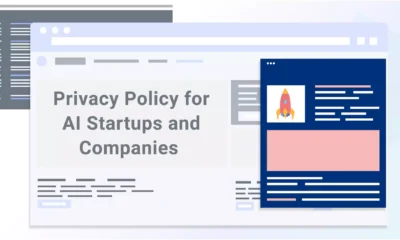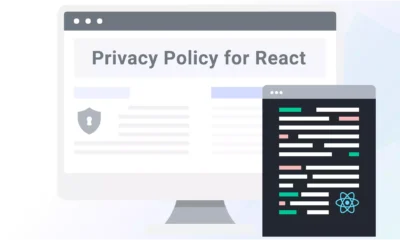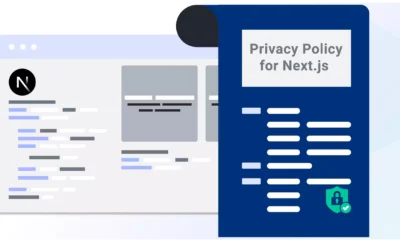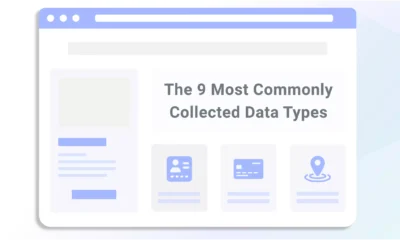Running Google AdSense is a great way to integrate relevant ads on your website that might interest your users, but to use it, Google requires you have a privacy policy that complies with applicable data privacy laws.
Below, I explain the Google AdSense privacy policy requirements and teach you how to make one for your website.
- How To Create a Google AdSense Privacy Policy
- What Is A Privacy Policy?
- Which Privacy Laws Affect Google AdSense Users and How?
- Does Your AdSense Monetized Website or App Need a Privacy Policy?
- What Privacy Requirements Does Google AdSense Have?
- What Are the Benefits of Having a Privacy Policy When Using AdSense?
- What Do You Need to Cover in Your AdSense-Compliant Privacy Policy?
- Examples From an AdSense-Compliant Privacy Policy
- Where to Display Your Google AdSense-Compliant Privacy Policy
- Summary
How To Create a Google AdSense Privacy Policy
There are a few ways to create your privacy policy. You can use a managed solution or free template or draft the policy yourself.
Use a Generator
The easiest way to make a privacy policy for your site that aligns with Google AdSense guidelines and applicable laws is to use our privacy policy generator.
It asks questions about your business and makes a unique policy based on your answers.
Below, see two screenshots of the portions of the privacy policy generator relevant to your use of Google AdSense.
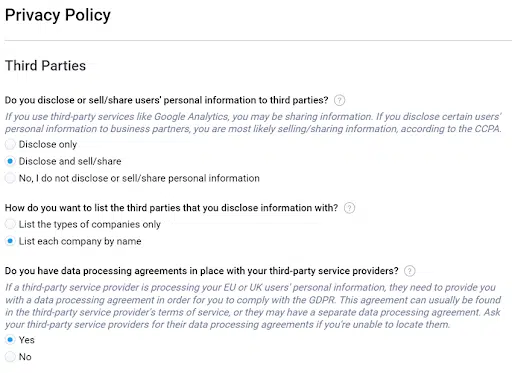
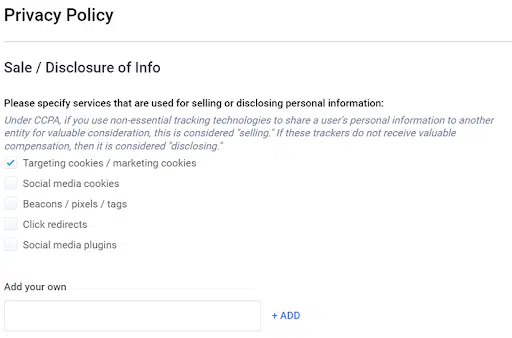
You can access the privacy policy generator for free by signing up as a new Termly user.
Google AdSense Privacy Policy Template
You can also use our free privacy policy template to create your AdSense privacy policy.
While this takes more work than a generator, it’s still an easy and efficient way to make one of these necessary policies for your website or app.
All you need to do is fill in the blank sections of the template with details about your company’s data processing activities.
Write Your Own Google AdSense Privacy Policy
Finally, you can try to write your own privacy policy for Google AdSense, but you should only do so if you have extensive knowledge of data privacy laws.
Data privacy legislation still holds you financially accountable if you leave something out, even by mistake. For most businesses, the risk isn’t worth it.
What Is A Privacy Policy?
A privacy policy is an essential legal document that details how you collect, store, share, and use your visitors’ data.
These policies integrate Google’s stipulations for AdSense users while adhering to the relevant data privacy laws.
They can also help foster transparency and confidence between you and your audience.
What Does a Privacy Policy Cover?
A privacy policy relays important information on how you deal with your visitors’ data, including:
- The information you collect
- How you collect information
- How you store and secure personal information
- Whether you share data with third parties
- The rights your visitors have over their personal information
- Whether you use tracking tools like cookies
- How you comply with data privacy laws
- How visitors can contact you regarding privacy-related concerns
- Special provisions for collecting personal data from minors
What Is Personal Information?
Data privacy laws around the globe have their own definition of personal information, but it typically refers to any data that can directly or indirectly identify an individual or household.
While AdSense does not define personal information, Google explains that personal data is information gathered from visitors that personally identifies them.
Google gives examples of personal information, including:
- Names
- Passwords
- Email addresses
- IP addresses
- Phone numbers
- Payment information
- Billing information
- Photos and videos
How Privacy Policies Work With AdSense Initiatives
AdSense provides various tools for owners and developers of websites and applications. These tools enable targeted advertisements to monetize your product.
When using AdSense, you may collect personal information from your visitors via cookies, which track visitor behavior.
Collecting this data subjects you to certain privacy laws, depending on your visitors’ locations and specific legal requirements.
AdSense itself also has explicit requirements regarding privacy policies, including clear disclosure of the following:
- Third-party vendors and ad networks on your site
- Google’s use of cookies for advertising
- Provisions for visitors and users to opt out of personalized advertisements
Google AdSense’s guidelines promote transparency and compliance, which can foster trust between you and your users.
Which Privacy Laws Affect Google AdSense Users and How?
A privacy policy for Google AdSense products must comply with more than just Google’s requirements. There are numerous data privacy laws that you may need to meet.
The privacy laws you must adhere to will vary depending on the specifics of your product, the location of your visitors, the types of data you collect, and your industry.
Those laws include the following:
- General Data Protection Regulation (GDPR)
- California Consumer Privacy Act (CCPA)
- Colorado Privacy Act (CPA)
- Connecticut Data Privacy Act (CTDPA)
- Tennessee Information Protection Act (TIPA)
- Utah’s Consumer Privacy Act (UCPA)
- Virginia Consumer Data Protection Act (VCDPA)
- Personal Information Protection and Electronic Documents Act (PIPEDA)
- Quebec’s Law 25
Does Your AdSense Monetized Website or App Need a Privacy Policy?
Yes, your AdSense monetized website or app needs a privacy policy as outlined by the Google AdSense Required Content Policy.
Additionally, because AdSense collects your users’ information to show personalized advertisements, having a privacy policy may also be a legal requirement.
Beyond legal and Google requirements, having a privacy policy can also help you build trust with your users.
You create a community of openness and integrity by transparently outlining how your visitors’ personal information is collected, shared, and used.
Your users are more likely to engage when they know how you treat their data.
What Privacy Requirements Does Google AdSense Have?
AdSense has specific privacy requirements that you must adhere to when using it.
These requirements align with global and US data privacy laws and ensure transparency between you and your users.
Understanding these requirements is important, as non-compliance can lead to strict penalties or suspension from AdSense.
Google AdSense has the following privacy requirements:
In addition, Google AdSense makes it clear that it’s your responsibility to ensure your privacy policy and data practices align with the data privacy laws in the jurisdictions of your users.
What Are the Benefits of Having a Privacy Policy When Using AdSense?
There are multiple benefits to having a privacy policy in conjunction with your AdSense account.
Maintaining legal compliance.
Following Google’s AdSense requirements and creating a privacy policy helps you meet local and international data privacy laws and avoid expensive fines.
Adhering to AdSense requirements.
A robust privacy policy that meets AdSense requirements ensures that your account remains in good standing, allowing you to benefit from the AdSense platform.
Enhancing visitor experience through personalized ads.
By complying with AdSense requirements, you ensure that users only see advertisements that match their interests.
Personalized ads are more relevant and can increase engagement and conversion rates.
Building trust.
A privacy policy helps build trust and transparency with your users. Consumers understand data privacy more than ever before and may avoid platforms that lack these policies.
Clearly outlining your data and privacy practices demonstrates your commitment to ethical data practices and improves the user experience.
What Do You Need to Cover in Your AdSense-Compliant Privacy Policy?
Creating an AdSense privacy policy is crucial if you wish to monetize your website or app using Google’s AdSense.
Your policy must be accessible, transparent, and aligned with Google’s requirements while meeting all relevant privacy laws.
To check that your AdSense privacy policy meets Google’s requirements, ensure that you cover all of the following:
- Disclose how you collect, use, and share data.
- Disclose how third parties collect, use, and share data.
- Ensure users consent to data collection.
- Offer clear opt-out options for non-consenting users.
- Comply with all relevant local and international privacy laws.
- Consider whether you collect information from minors and include legally compliant provisions regarding data collection from children.
- Ensure your AdSense privacy policy is easily accessible and transparent.
Crafting a comprehensive AdSense privacy policy doesn’t need to be a significant task.
Examples From an AdSense-Compliant Privacy Policy
Before crafting your AdSense privacy policy, browse the following examples that adhere to Google AdSense standards.
Disclose How You Collect, Use, and Share Data
The first thing you should add to your privacy policy for AdSense is a clear disclosure of all the information you track, collect, and use.
Doing so is required by both Google and data privacy laws like the GDPR and CCPA.
You can see an example of how to write this clause in the screenshot below.
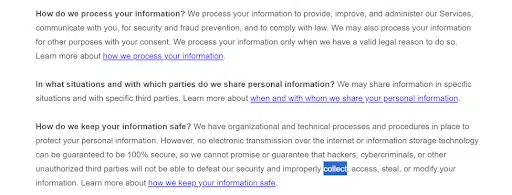
Disclose How Third Parties Collect, Use, and Share Data
Next, clearly disclose information about any third parties you share the data with.
For example, since you’re using AdSense, you must mention their cookies and the third-party vendors that serve ads on your site.
If possible, provide links to third-party privacy policies as required by Google and data privacy laws like the CPA and the VCDPA.
See a screenshot example of this clause below.
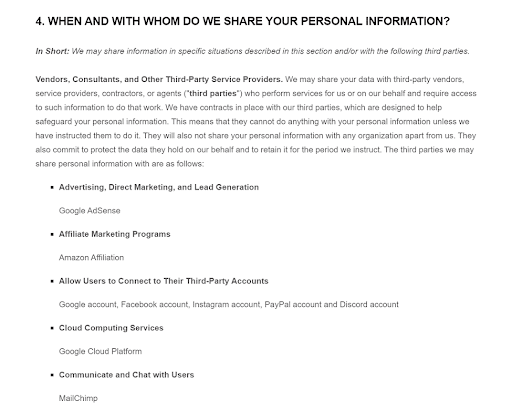
Purpose Of Processing Personal Data
You must also disclose to consumers why you’re collecting their data somewhere in your AdSense privacy policy.
Under laws like the GDPR, this is known as your legal basis.
Because you’re using AdSense, you must indicate that you use it for target advertising, which data privacy laws heavily regulate.
See a sample of what this clause looks like below.
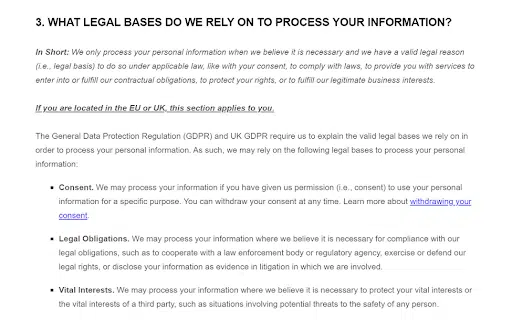
Offer Clear Opt-Out Options for Non-Consenting Users
You must inform users how to opt out of personalized ads served by AdSense.
Providing clear opt-out instructions aligns with AdSense’s emphasis on user choice. But, depending on the laws that apply to you, this may also be a legal requirement.
See a sample of how to write this clause below.

Consider Whether You Collect Information From Minors
If you target minors, you cannot run targeted ads through AdSense.
In their Ads & Made For Kids Content Guide, Google explicitly states that targeted ads aimed at minors are not allowed through their services.
Ensure Your AdSense Privacy Policy Is Easily Accessible and Transparent
Your AdSense privacy policy should be visible and accessible to users. Use clear, understandable language and avoid legal and technical jargon.
If your wording is too obscure, it may confuse your users. Display your policy prominently on your website or application.
Where to Display Your Google AdSense-Compliant Privacy Policy
You should display your AdSense privacy policy in a visible and accessible location to meet the requirements from Google and relevant privacy laws.
Common places to display it include the following locations:
- Main menu
- Sign-up page
- In user account settings
- Website’s footer
- Check-out page
Post your privacy policy in multiple spots so users can always easily find it.
Summary
If you use Google AdSense, you must also post a privacy policy following all of Google’s privacy guidelines and all data privacy laws that apply to your business.
But you don’t have to do it all alone.
With Termly’s Privacy Policy Generator, you can easily satisfying these Google AdSense’s requirements and align with applicable privacy laws.
Reviewed by Teodor Stanciu, CIPP/E, CIPM Legal Coordinator & DPO


